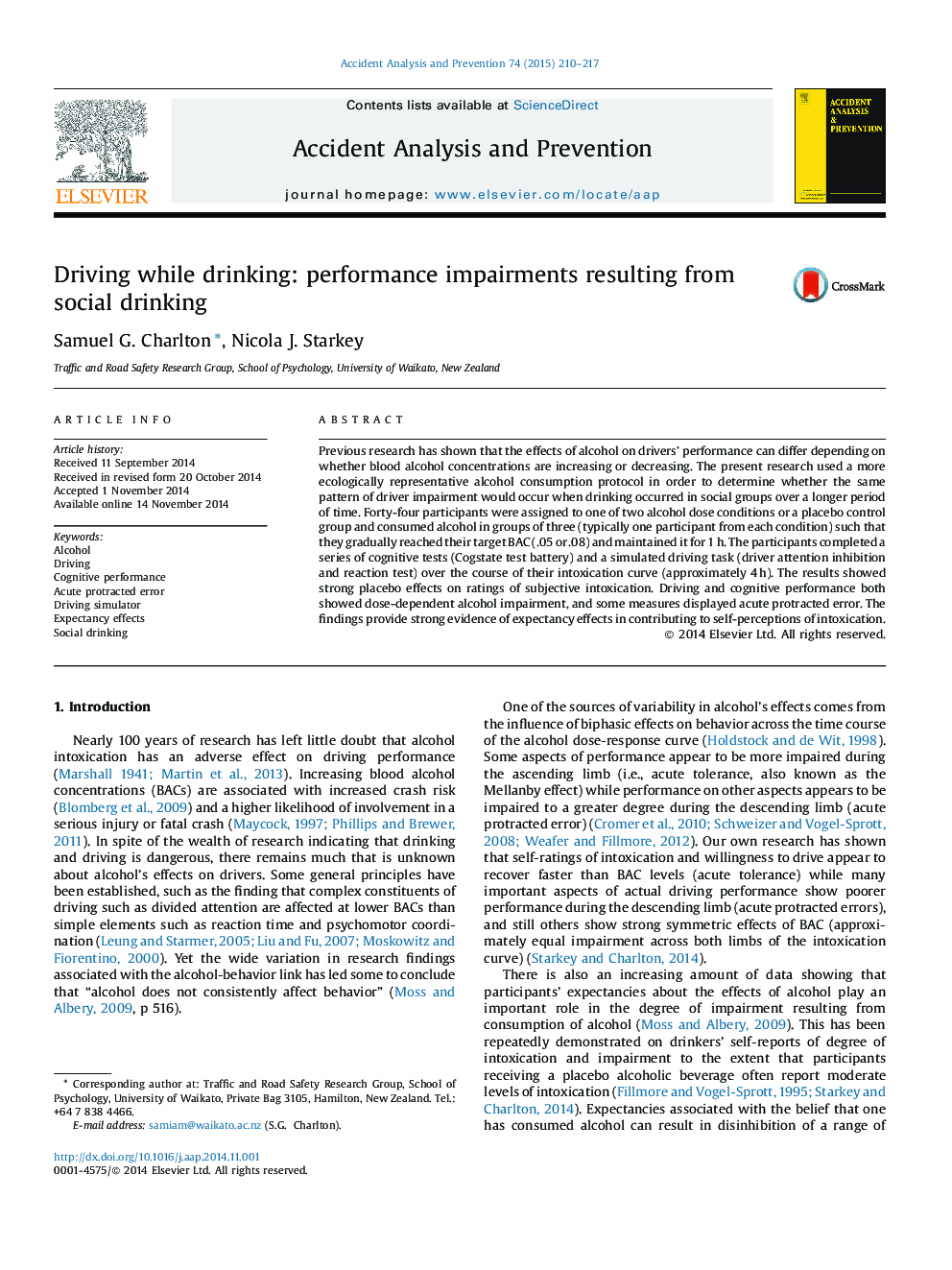| Article ID | Journal | Published Year | Pages | File Type |
|---|---|---|---|---|
| 6965818 | Accident Analysis & Prevention | 2015 | 8 Pages |
Abstract
Previous research has shown that the effects of alcohol on drivers' performance can differ depending on whether blood alcohol concentrations are increasing or decreasing. The present research used a more ecologically representative alcohol consumption protocol in order to determine whether the same pattern of driver impairment would occur when drinking occurred in social groups over a longer period of time. Forty-four participants were assigned to one of two alcohol dose conditions or a placebo control group and consumed alcohol in groups of three (typically one participant from each condition) such that they gradually reached their target BAC (.05 or .08) and maintained it for 1Â h. The participants completed a series of cognitive tests (Cogstate test battery) and a simulated driving task (driver attention inhibition and reaction test) over the course of their intoxication curve (approximately 4Â h). The results showed strong placebo effects on ratings of subjective intoxication. Driving and cognitive performance both showed dose-dependent alcohol impairment, and some measures displayed acute protracted error. The findings provide strong evidence of expectancy effects in contributing to self-perceptions of intoxication.
Related Topics
Physical Sciences and Engineering
Chemical Engineering
Chemical Health and Safety
Authors
Samuel G. Charlton, Nicola J. Starkey,
